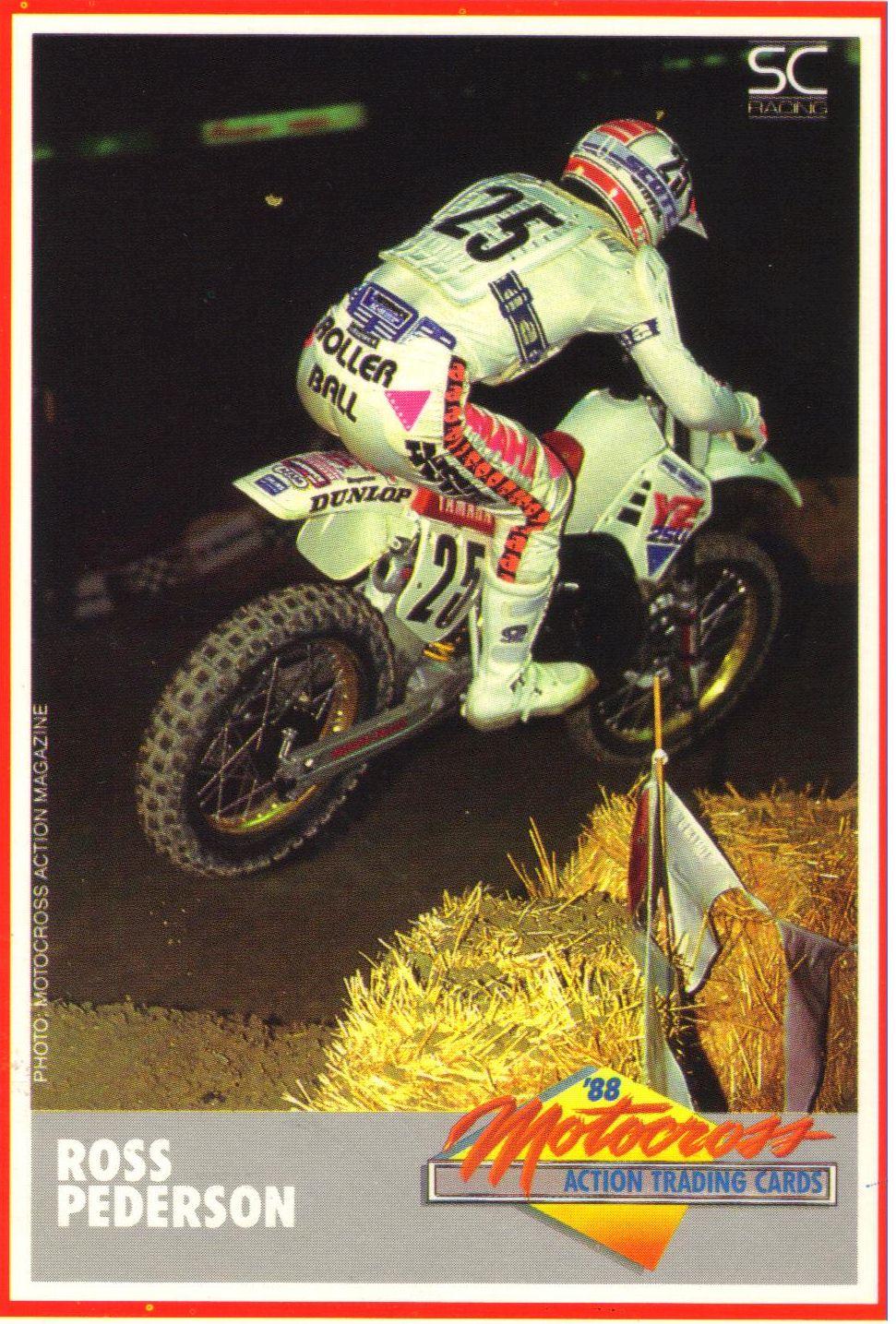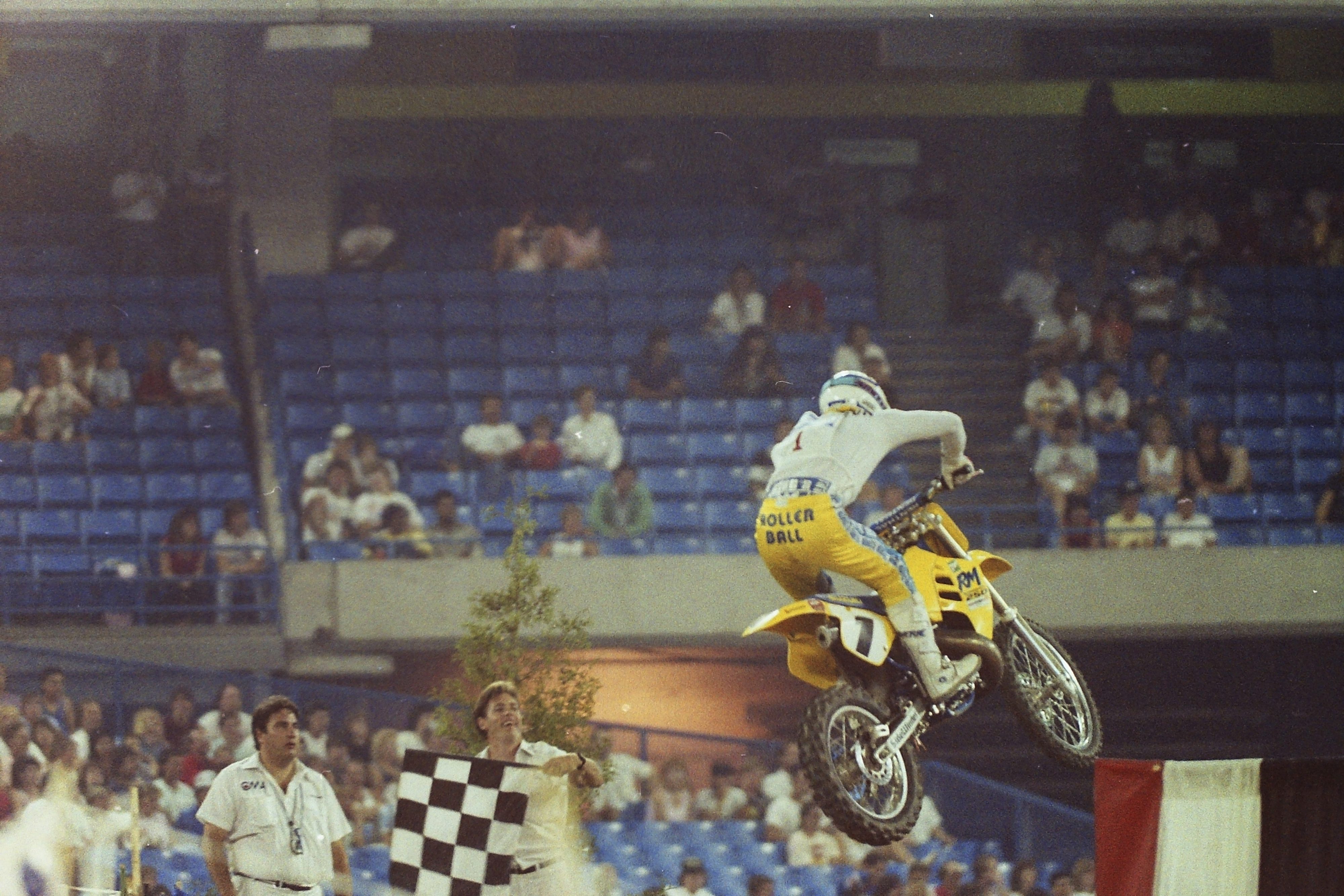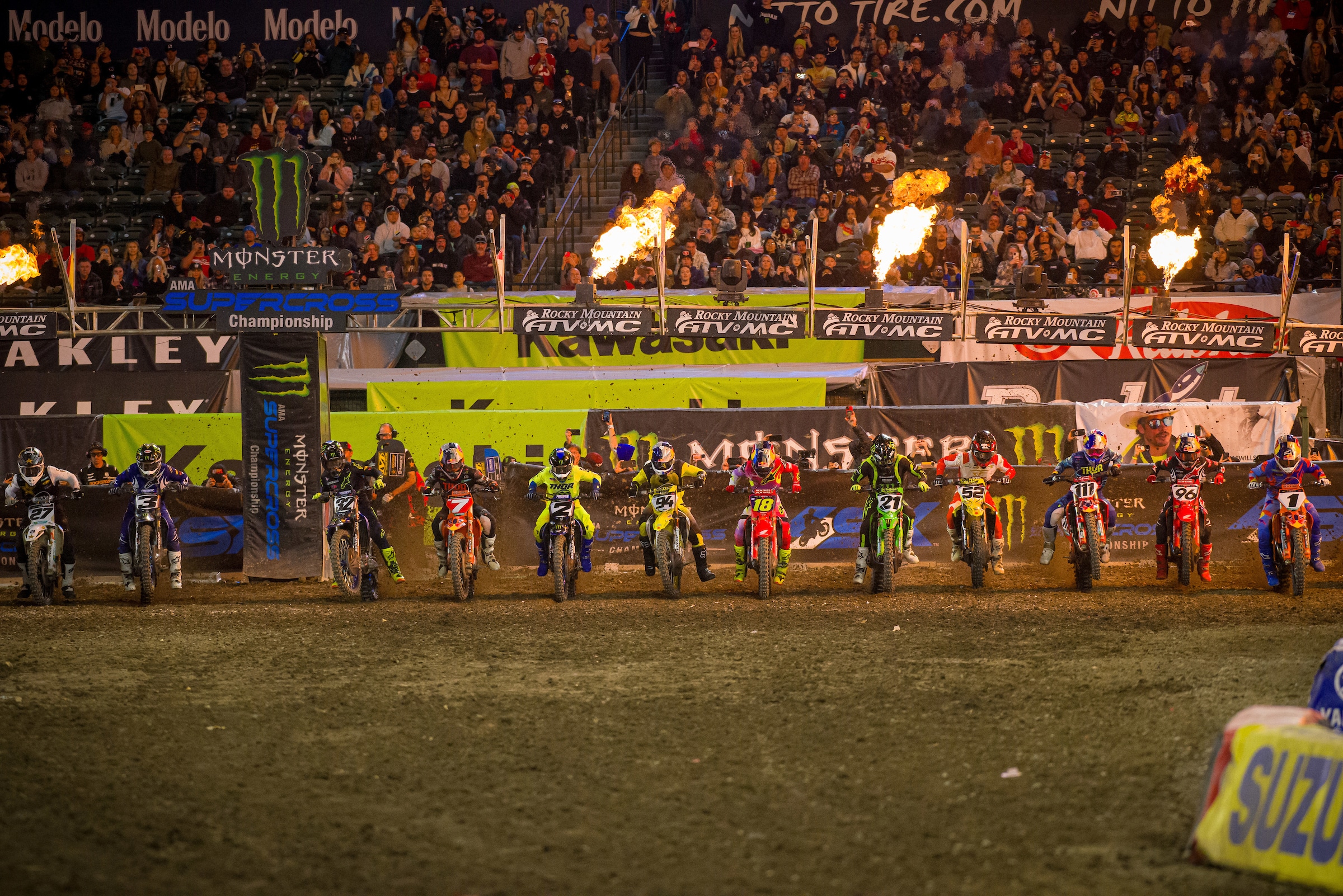When we look back at a few of our most successful Canadian riders, there are obviously a lot of differences between them. Where they’re from, their riding style, and what years they were successful are a couple of things that stand out. However, as different as they are, one of the common denominators that all champions share is their will to win and their distaste of losing. I mean, let’s face it, we all hate to lose, whether it’s a game of basketball, a race, or even a card game during this lock down that we’ve all be in. But champions and people that consistently find success absolutely hate to lose and they start their days like that. It’s not a reactionary emotion, it’s part of their preparation. I’m not sure if some of you have been watching the new Michael Jordan series “The Last Dance” on Netflix but it really goes in depth showing what an animal MJ was during his long and successful career. He not only hated to lose on a daily basis, but peak performance and the need to improve consumed his thought process from sun up to sun down. Again, like all champions he cared so greatly about the little things and left no stone unturned in his pursuit of excellence. He was hard on his teammates during practice and in games, and pushed them to be the best they could be, even when they didn’t want to be. Like all of the great leaders from our time, he never asked anyone to do the difficult tasks that he wasn’t willing to do himself. Like a Tiger Woods or Ayrton Senna in their prime, Jordan did everything humanly possible to win and was driven by the fear of losing.

I don’t want to start a debate here about who are or were our best Canadian riders. That is the beauty about opinions, everyone is allowed to have one. We’ve been so lucky in Canada to have had so many great riders over the years. However, if I were to pick three from the past four decades then those riders would be Ross Pederson, Jean Sebastien Roy, and most recently Colton Facciotti. This trio won multiple titles, enjoyed success on a global scale, came back from injuries numerous times, and during their respective era were considered the rider to beat by their competition. Even though these three riders came from different places and had many different attributes (both on and off the bike), they all shared the same work ethic and mental state of mind of a Michael Jordan and Tiger Woods. Because, at the top level of any sport all of the athletes are talented, which is why they’re competing there. But at some point, the going is going to get tough and that is when these guys really shine. I’ve been lucky enough to know all three of these riders quite well and I’ve seen them all perform under pressure, seemingly when others cannot. I’ve also witnessed them away from the races and I can tell you that each one has given me examples as to why they’ve been so successful. I don’t want to leave out any details so I’m going to split this into three parts this week and look at each rider separately. First, let’s talk about Ross Pederson.

When I turned pro in August of 1989 Ross had already enjoyed most of his success, winning multiple titles and earning a lot of money. Some people say that money is what drove Ross and that he never would’ve left the airport in Medicine Hat, AB without at least a decent chance to make money. My feeling is that Ross understood early on in his career that racing dirt bikes was a dangerous occupation, but as long as he could balance the risk versus reward aspect of it, then he had no issue doing whatever it took to win. Also, like JSR and Facciotti, Ross came along at the right time when there was some good money to be made racing dirt bikes in Canada. Like any of us, once you get the taste of making money, you really want to make more. So, Ross was highly motivated every time he lined up on the starting gate, and when he wasn’t, he retired.
I’m not sure why but during the first few years of being a pro rider, Ross and I became pretty close. Maybe it was the whole mentor-protege thing and the fact that since I was quite a bit younger than he was, I’m sure he enjoyed my youthful exuberance and didn’t feel threatened. Anyway, in the summer of 1992 Ross invited me to stay with him in Medicine Hat between the Manitoba and BC rounds of the Nationals. Since my Dad and I were travelling alone we decided to take Ross up on his offer as we not only enjoyed his company but my Dad also had some friends in Medicine Hat, so he decided to stay there while I stayed at Ross’s house. At the time Ross lived on a golf course in a very nice house, and my first thought was that I couldn’t believe that he could make that type of living racing dirt bikes. Little did I know, but during the 1980s the top riders in Canada were making a very good living. Ross had done well for himself and had a nice house to prove it. Of course, unless you win the lottery not many people make a lot of money without first earning it. So, while the house, the nice vehicles, and the golf course view were the first things I saw, I was about to see what Ross did to earn these fruits.

The next morning, I woke up to Ross knocking on my bedroom door telling me it was time to get up. It was 7am and it was time to begin our day. After a quick bowl of cereal, Ross told me to put on my running shoes as we were going to go for a run. Okay, I thought. As a 19-year-old pro rider I had done some running in my life but not usually at 7:30 in the morning. Anyway, we headed out on the street and ended up over on the golf course, running on some of the cart paths until we looped back around to Ross’s house. It ended up being a 45-minute jog, and I was dripping with sweat and pretty tired. Ross, on the other hand, wasn’t even sweating and looked like he hadn’t even workout. Anyway, next up was a quick stretch and then a little yard work before loading up our bikes to go riding.
On our way out to the track we stopped for some water and food to take to the track. I remember asking Ross about all of his titles and races from the past. Just listening to his old stories was so cool. At that point, 1992 was his next to final season of racing so he had a ton of old memories to share. We arrived at the practice track and began to ride. Since it was late June, the temperatures were very warm in Alberta and the track was hard packed and dry. We started riding and kept riding, and then we rode some more, and then some more! By the time we wrapped up our motos it was around 2pm and it felt like we had ridden about 500 laps. I had no gas left, my hands were destroyed, and my body wasn’t doing much better. Again, Ross was dirty but still looked fresh as a daisy. As we left the track, I asked him if that was how much he rode everyday. He shockingly replied, “Today was sort of a light day.” I was ready for a nap and more than thankful that we were headed back to the house to relax. Or at least so I thought we were.

On the way back to Ross’s house we stopped at his infamous training spot, a long set of stairs at a park in the city. As I would find out later, Ross ran these stairs for years and had almost every workout logged. We started running up and down these stairs until I couldn’t see straight. At least this time Ross was sweating and looked like he had worked out. From there we went back to his house, got our bikes ready to ride the next day and then went for dinner. Thankfully, it was an early dinner as I was ready for bed by 9pm. The next day we got up and did the same thing again, and then the same happened again on the Thursday. By Friday I was so happy that it was time to drive to BC that I couldn’t wait to get into the box van with my Dad and take a long nap.
It took a few months to let that week at Ross’s house really sink in, but when it finally did it made me realize how much work it took to be the best. Ross told me that he did that every week when he was home, and that if he didn’t do it, he felt like crap. He treated racing and training like a 9-5 job, and when he wasn’t doing that, he was either working around his house or was on the phone making deals. Of the three riders that I mentioned above, Ross was the most like Michael Jordan. He loved to try to intimidate his competition and would intentionally do things to exercise his superiority. One of stories he told me was that sometimes during riders meeting he would try to stand on something so he was above all of the other riders. That way, even before the racing started, his competition would have to look up at him. You see what I mean? Ross was an animal and he lived and breathed racing. He also came from an era where most of the riders didn’t like each other so head games weren’t uncommon. Ross didn’t come blessed with a lot of natural riding talent, but he was blessed with a strong work ethic and a plethora of determination. Tell him that he couldn’t do something and he would then go out and do it. I’m not saying that today’s generation has to train like Ross did, but if you want to be successful then you better be able to suffer and work as hard, or harder, than your competition.
Stay tuned for Part 2 when I talk about hanging out with JSR in 1996.





